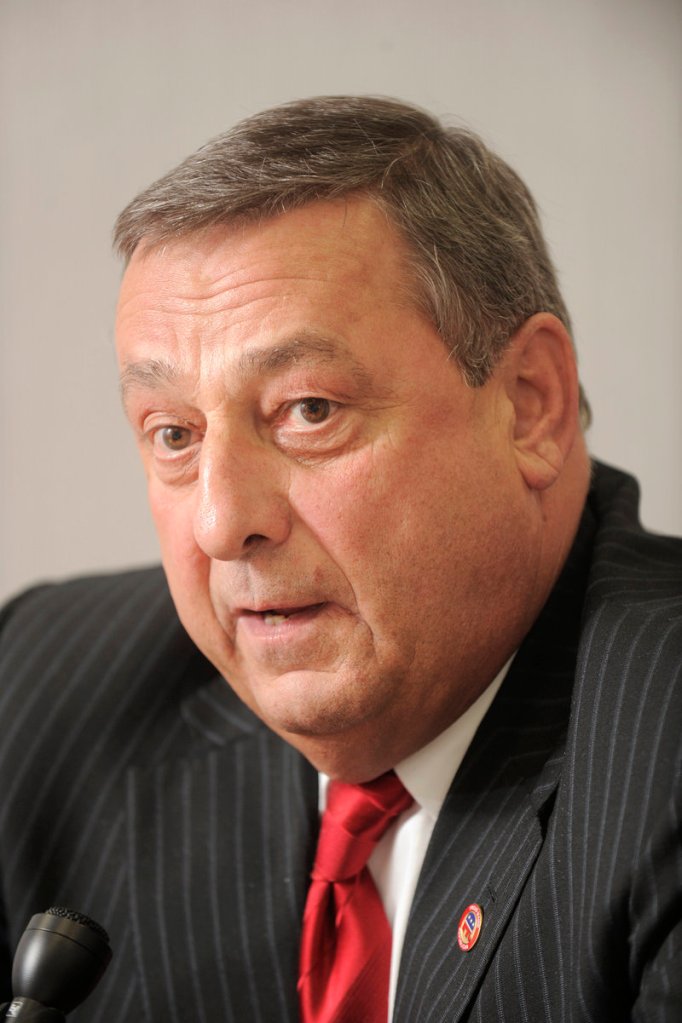Watch candidate interview
Paul LePage, the mayor of Waterville, said there is a simple reason why he wants to be Maine’s next governor: the American Dream.
He said he is a product of the American Dream, having left his family — he was one of 18 children — when he was 11 to live on the streets of Lewiston before being taken in by two families, putting himself through college and becoming a business success, most recently as general manager of Marden’s Surplus and Salvage.
“It is a way to give back, and I firmly believe, unless a strong fiscal conservative takes the reins in Augusta, this is the last generation of the American Dream,” LePage told MaineToday Media’s endorsement board Wednesday.
LePage, one of seven Republicans who are seeking the party’s nomination on June 8, he said he would bring a common-sense approach to government, following the steps he has taken in Waterville.
He said his administration has cut taxes by 13 percent in six years, largely by trimming the city’s work force from 130 to 109, “without cutting services.”
LePage said he would take the same approach to state government. As a fiscal conservative, he said, he has pledged not to increase taxes or fees.
“In fact, I will reduce fees,” he said.
He said he would help generate new jobs by making it easier to do business in Maine, where regulations, in his view, seek to control rather than provide oversight.
Asked to provide examples of anti-business regulations, he pointed to his own experiences.
Marden’s opened a store in Ellsworth this year. It requested that the blinking yellow light on the road in front of the store be converted to a stoplight before the summer traffic returned. But before that change can be made, state transportation officials are requiring Marden’s to do a traffic study this summer, he said.
LePage said Waterville wanted to extend a mile-long sewage treatment line to help adjacent Oakland, which is operating with an antiquated facility. Environmental regulators delayed the project pending a study of its effect on Atlantic salmon in the Kennebec River.
“There are no salmon in the river,” he said.
LePage said the Department of Environmental Protection delayed a biofuels power plant project in Washington County, which he was involved in for two years, with requirements for impact studies.
“We have left the science behind and gone to delays and courtrooms,” he said.
Send questions/comments to the editors.




Comments are no longer available on this story